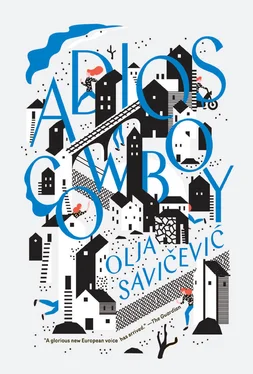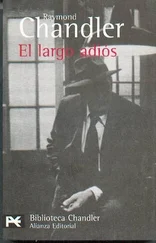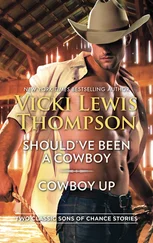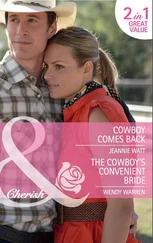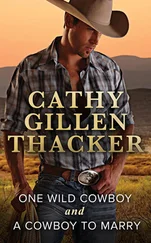“Sure, old thing,” she had said, “no problem.”
It was almost day.
There weren’t many customers at the Last Chance. Closing time was in the air.
The fellow at the bar, an old guy sleeping with his head on the table (“Dipso,” said the g.a.t.b.), four Swedish tourists at the separate table (“swingers,” said the g.a.t.b. between two gulps), and right at the back, beside the door to the toilet, a mysterious good-looker playing a mouth organ.
Well, well, I thought. What film was this?
A foot on the edge of the table and a blue tuxedo. He was leaning his head and shoulders against the wall. Playing.
Foreigner, I thought.
“Phoney?” I asked the guy at the bar, rolling my eyes in the direction of the lad in the gloom.
“Nah! That’s Angelo!” said the guy.
“Hey, Tubby, take Angelo a Southern and give the kid a cognac! And another big one for me!” he rolled the empty beer bottle across the bar.
Diana looked at him grudgingly. The guy owed her.
“To hell with that!” The guy pulled a face. “Write it down. Just write it down, I say.”
The good-looker in the corner blew twice into his harmonica to clear the dust, then launched into a familiar tune. Yippee ya yo. Yippee ya yay.
“THE KID DID A THOROUGH JOB. He wanted to be sure he wouldn’t survive,” the inspector had commented.
They found Daniel’s body immediately, some twenty meters from the viaduct, in a vineyard, and his left arm only two days later, in a stream under a spruce bush.
“You’re lucky, the part that was in the water wasn’t got by vermin,” said the coroner when we had made our way down the long staircase into the hospital’s basement mortuary. They had somehow attached the arm for the identification.
Blood had spurted all over the place, over the trees and the frozen vine leaves, said people who had made a pilgrimage to the place of the mishap for the first few weeks, leaving plastic roses and lamps that lasted as long as their batteries did behind the St. Andrew’s cross.
“A performance,” my sister had said as we approached the railway line.
On the day of the funeral some relations whom I barely knew drove me from Zagreb.
They crammed six adults into the car. It was drizzling and we were all given a salami sandwich for the journey. The air was sour as were the salami and the drizzle.
Later, in the evening, as my sister and I drew near to the railway, I was still feeling sick from that air in my nostrils. My sister wanted to get it over with quickly and dragged me by my moist, limp hand, as though we were children; she held it for a while in her own cold, dry one, digging her little sharp nails into my palm.
In the mortuary, I looked at my brother’s right hand, on which the nails he’d always bitten down to the quick had grown in the meantime. Because of those nails that had grown I would’ve known he was dead, even in my sleep.
“It’s Daniel,” I said, although the puppet with the small head lying on the metal table no longer had anything to do with him.
He didn’t leave any kind of letter.
“They don’t usually leave any, actually,” people told me.
“Get over it, doesn’t everyone leave without a message, what’s so strange?” said my sister.
What do I know about everyone , I thought. It wasn’t like Daniel, I thought, to go without a word.
Some people I half knew wept without ceasing and that drove me out of the house. I remember that one lady in black, who used to frequent funerals, sat in the hall, in the corner under Mother’s old hair dryer, sobbing and blowing her nose noisily, so that she looked like a desperately grieving woman at a hairdresser’s.
“Masochists,” said my sister. “They didn’t even know him. Perverse.”
Once, as children, we’d been at a funeral in the hills, where a professional mourner had been brought in, paid to wail and so inspire other people to cry. I think she was exceptionally successful as I too began to cry, from pure horror. Then my sister said: “They’ve terrified the kid, masochists.”
That was the first time I heard that word.
The years — from the day when the police rang the bell and Ma opened the door — passed in a flash, but I remember that unknown lady in black under the hair dryer better than any of the three of us.
Between my brother’s death and my sister’s almost incidental phone call that brought me back home, nothing worthy of mention happened, at least not to me.
I returned to the Old Settlement, for the answer to my question, for the words that my brother had sent to some fourth person, not to my mother, nor my sister, nor me. That’s what drives me to keep walking, turning over every stone. And, if truth be told, all I’ve discovered in my roaming and turning over is that the world contains more stones than snakes and bugs under them.
“Yawn and stretch as much as you can,” ginger Jill told me in an ancient dream. And I obey her, because every cat that speaks, even in a dream, deserves attention. I am waiting on a bench in the deep shade of a carob tree for my host to appear, I yawn and stretch in the scorching, endless, hypnotic Settlement afternoon. Lethargy, they call it, when a place hypnotizes you.
In the silence, from the other side of the garden, over the wall, purple figs can be heard thudding onto the ground, their tree, abandoned to itself, having gone wild like the beanstalk up which that idiot wanted to climb to the sky.
Through the brightly colored strips of plastic of the curtain in the doorway, Herr Professor appears and places a tray of cold tea and cakes on the garden table.
“Petits-fours,” he says.
He stretches out his fleshy legs with their strong white calves and from time to time rubs one pink heel against the other. On the other side of the courtyard, beside the broken greenhouse, with two stunted lemon trees, their branches pruned, a pair of tortoises are mating. “They’re a bit late this year,” says the Professor. The female doesn’t stir, while the male has opened his little mouth wide. There are a few stiff, dirty rags on the washing line, with flies and flying ants landing on them, and from the garden, tap water drips persistently into the yellowing stone basin.
I bend toward the iced cakes, but the Professor stops me with a movement of his hand. Something is noiselessly rolling toward us.
“Listen!”
Cymbals clang and stop the air.
“It’s St. Fjoko’s Day,” Ma had concluded this morning at breakfast.
“St Fjoko,” I say out loud, reaching for a cake.
“Aha, the town saint’s day!” The Professor slaps his thighs.
“Vrdovđek just bought it. The brass band.”
“Vrdovđek, oh yes. The one with all the shops?”
“Shops, and everything in the Settlement. He’s the big shot now,” I say.
I watch the Professor: his face, his blinking eyes, large hands, so white they’re almost blue. Over the years, his physical resemblance to a drowned man has become more obvious. And with those whiskers and that mustache — like a catfish, really. Whales and dolphins returned to the sea, disappointed with life on land, but the Professor’s type of sea creature had remained forever in between, wedged. He had once kept salamanders in formalin in glass jars in his living room, the way people in the Old Settlement keep pictures of their closest relatives. He also had two salamanders (“two fiery dragons,” he said), but I think all those jars were shattered in the incident.
With a rolled newspaper, he attempts to drive away the flies attracted by the cakes. As he swats them, scampering round the table, he is no less formal and pompous than he was a little earlier with the tray, I observe.
Читать дальше
